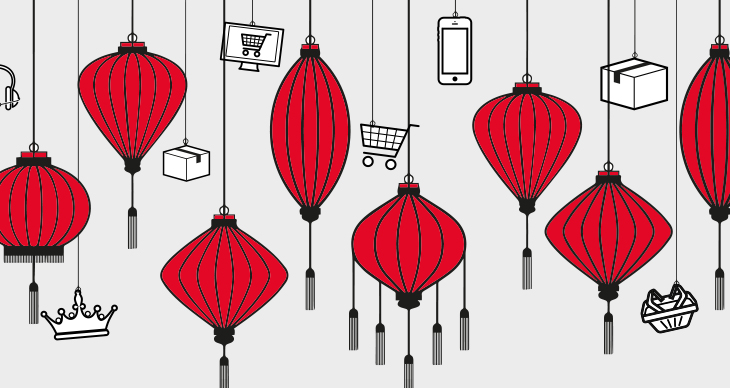 image: dmb-shanghai
image: dmb-shanghai
Alibaba is achieving something rather surprising: It is turning many of its enemies into allies. For instance, roughly a year after Louis Vuitton sued individual sellers on Alibaba’s TaoBao platform for peddling counterfeit goods, the luxury conglomerate teamed up with the Chinese e-commerce behemoth as part of the Alibaba Anti-Counterfeiting Alliance (“AACA”), a group that sees Alibaba partnering with brands “to create healthy society for the protection of intellectual property rights” by way of “the latest anti-counterfeiting technology.”
Since its launch in early 2017 with a total of 30 signatory brands, ranging from Swarovski to Samsung, the AACA has found itself quite a few more friends. 75 more to be exact. These new additions to the list of companies that have agreed to partner with Alibaba to crack down on counterfeit goods on its e-commerce platforms, include some very big names.
Adidas, Burberry, Canada Goose, Estee Lauder, Levi’s, L’Oreal, Luxottica, Ralph Lauren, and Valentino, for instance, join other consumer goods giants, such as Apple, Procter and Gamble, Bose, and Microsoft, to make up the growing list of AACA members.
Together with Alibaba – the Chinese e-commerce company launched in 1999 by Jack Ma and Peng Lei – all brand members collaborate on six key areas: Proactive monitoring, product test-buy, offline investigation, law enforcement education, civil litigation, and public awareness campaigns.
Efforts on behalf of Alibaba, itself, have included an upgrade of its intellectual property protection portal – an online site for rights holders to log suspicious cases and share information – in order to make it easier to use and faster to navigate. Moreover, to encourage “more proactive monitoring and reporting by brands,” Alibaba has simplified its process for filing a notice-and-takedown request, thereby reducing the time to process a request and expedite investigations.
The willingness of 105 international brands to make an ally of Ali comes at an interesting time. Not only is the U.S. embroiled in a trade war with China over the nation’s widespread “theft” of U.S. intellectual property in which Alibaba says it has been positioned as a “scapegoat,” neither U.S. Trade Representative nor members of the International Anti-Counterfeiting Coalition have looked kindly upon Alibaba’s efforts to ward out fakes from its platforms.
However, if Alibaba’s growing list of AACA members if any indication, the narrative might be changing. Conan Chen, Director of Brand Protection, L Brands, which owns Victoria’s Secret and Henri Bendel, among other labels, spoke out in support of the e-commerce giant and its AACA initiative this week, saying: “We fully support Alibaba’s efforts to continuously strengthen online and offline intellectual property infringement enforcement.”
Leona Xie, Legal Director China of the heavily influencer-endorsed watch brand Daniel Wellington, similarly stated, “By joining AACA, we have confidence that through our collaboration with Alibaba, we can take the protection of our brand to a new level and continue to minimize infringers of our brand.”
As for Alibaba, it views the latest developments, including the addition of new intellectual property protection measures and influx of new members to the AACA, as a sign if its “commitment to intellectual property protection.”











